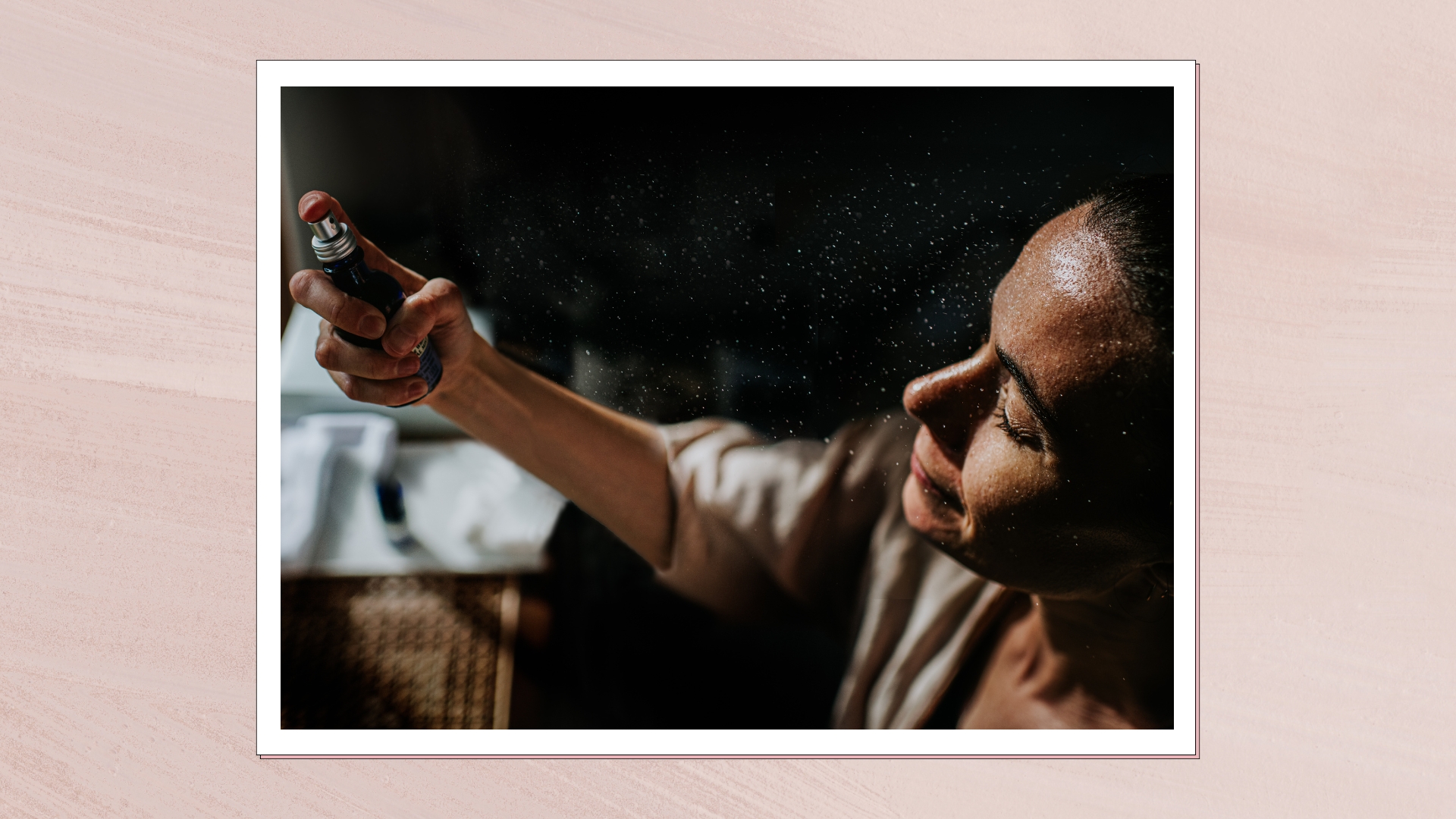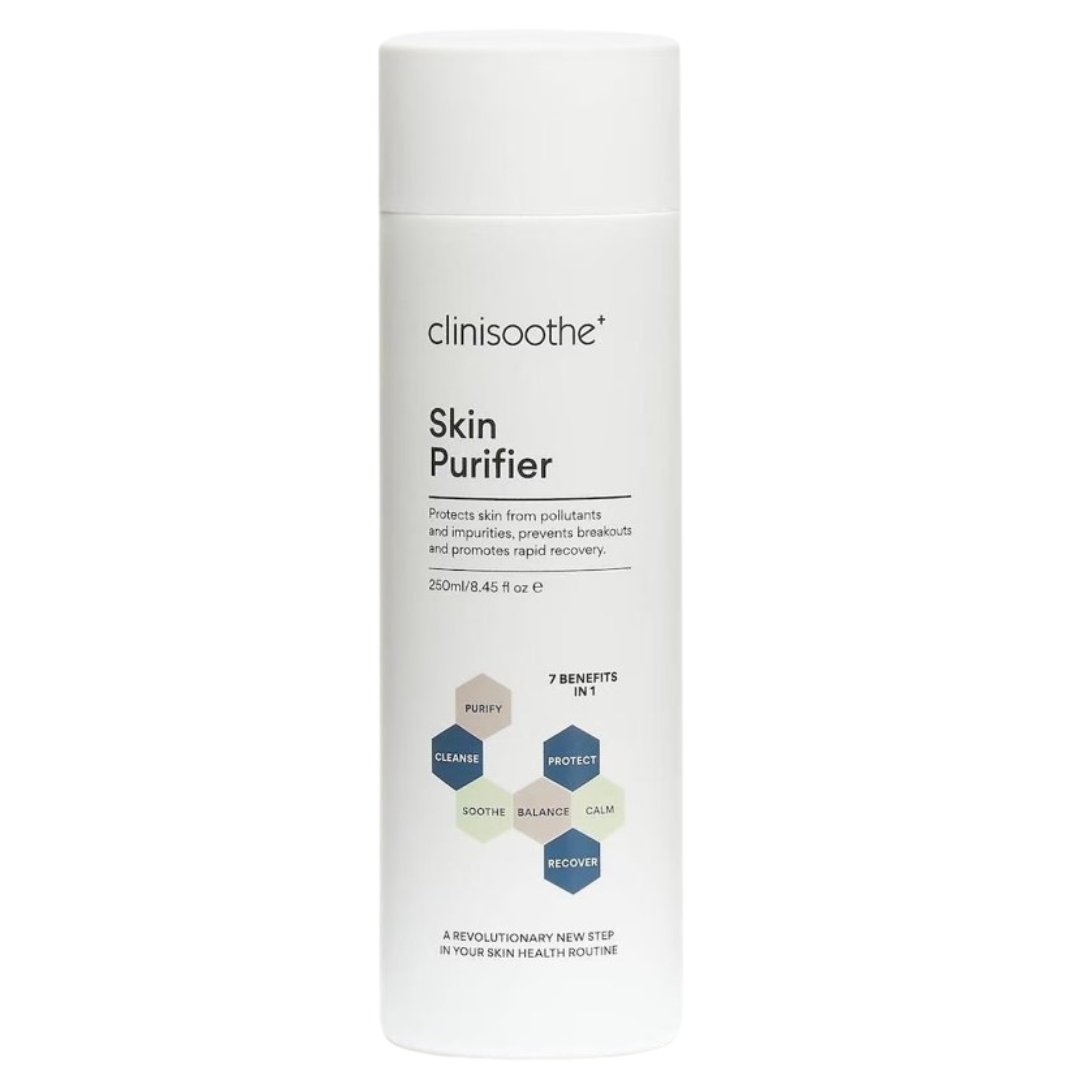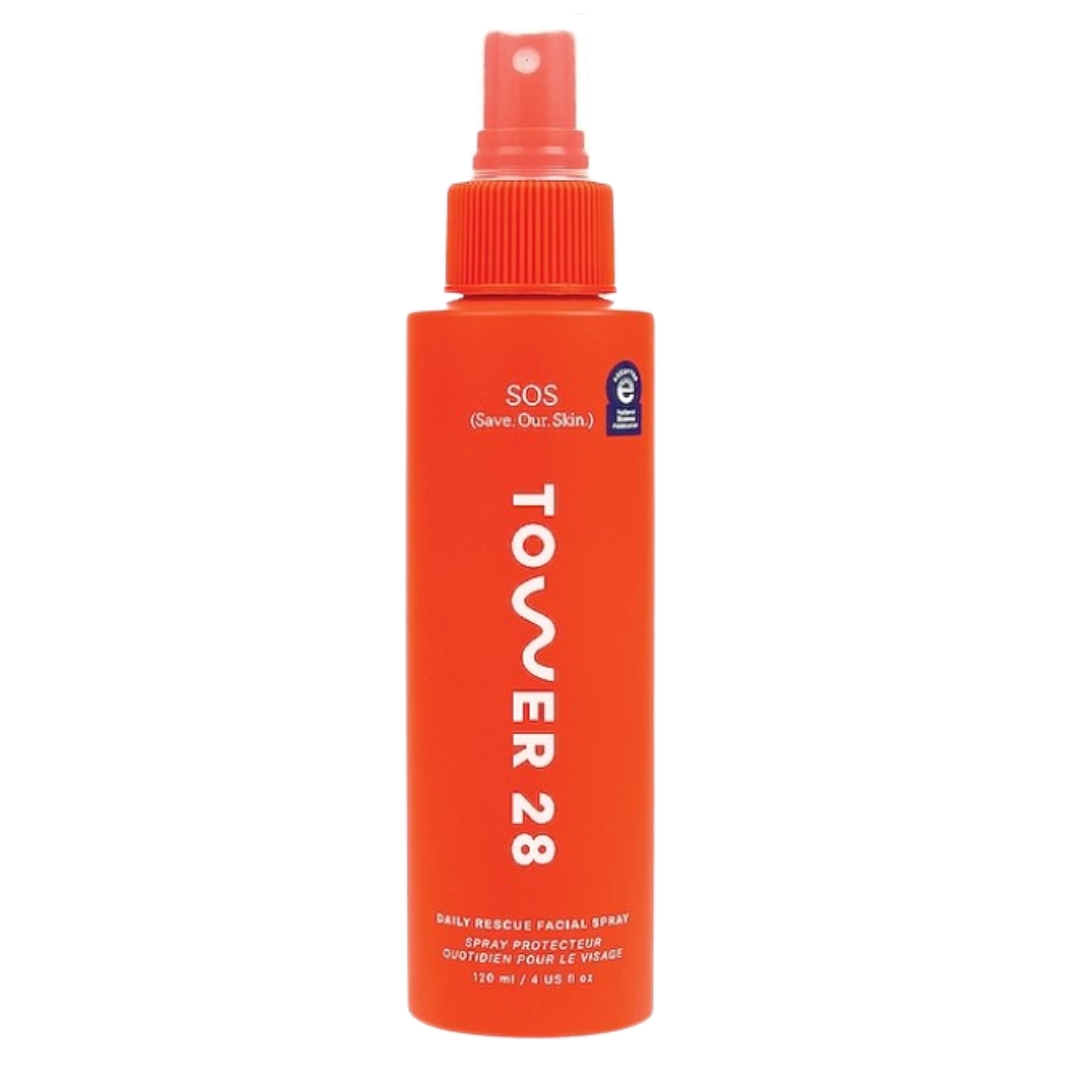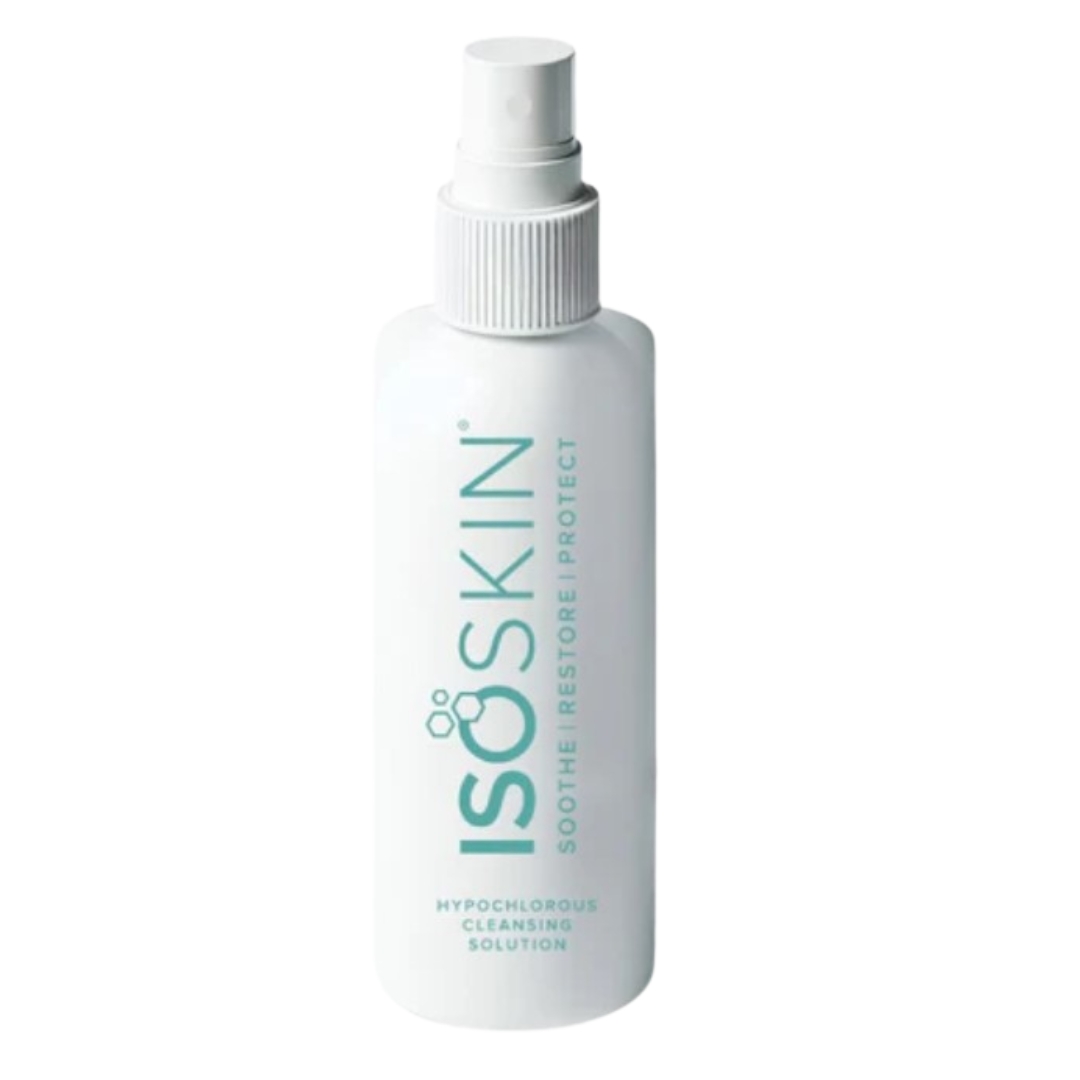Hypochlorous acid is trending, but what does this (scary-sounding) ingredient do?
With cleansing and anti-inflammatory properties, experts explain how hypochlorous acid can benefit your skincare regime


To paraphrase a classic saying: you shouldn't judge a skincare ingredient by its name. This is certainly the case for hypochlorous acid as, although it sounds somewhat terrifying, according to the experts it's a friend to congested and irritated skin...
If you were to list the contents of your bathroom cabinet to a skincare novice, be that the best hyaluronic acid serums or retinol creams, it would no doubt sound like you were reciting the compounds of a scientific experiment. This isn't far off, as our regimes are scientific and consist of chemicals and actives, the likes of which can seem daunting - especially to apply to your face - but are often very beneficial and gentle.
Hypochlorous acid is one such example of this, and right now it's gaining a lot of attention in the beauty space. Praised for its antimicrobial, PH-balancing and cleansing abilities, here's why you may want to consider adding a hypochlorous acid face spray to your arsenal.
What is hypochlorous acid?
Despite being a trendy and viral skincare ingredient, hypochlorous acid may be yet to cross your radar in the way ingredients like niacinamide and salicylic acid have. So what is it, exactly?
Dr Asha Chhaya, Aesthetic Doctor & Women’s Health Expert at WY Skin Clinic explains that it's, "a substance that our immune system naturally makes to fight infections and bacteria. It's a gentle acid that's been used for years in healthcare and wound care because it helps disinfect and heal. In skincare, hypochlorous acid is valued for cleaning and protecting the skin without being harsh, making it a popular ingredient in soothing and repairing products."
Mariam Abbas, Advanced Facialist, reiterates that "hypochlorous acid is innate to our immune system. Our white blood cells produce this mild acid to fight pathogens. In skincare, it is synthetically produced in controlled lab environments. However, it's a skin-identical solution that has both an antimicrobial and anti-inflammatory effect on the skin."
What are the benefits of hypochlorous acid?
Like its fellow skincare heroes, hypochlorous acid has many benefits, the main one being, "that it kills bacteria, fungi and viruses on the skin," notes Dr Chhaya. "This makes it especially useful for people with acne, as bacteria play a big role in breakouts.
Sign up to our free daily email for the latest royal and entertainment news, interesting opinion, expert advice on styling and beauty trends, and no-nonsense guides to the health and wellness questions you want answered.
"It also has anti-inflammatory properties, helping to calm irritated skin and reduce redness, which is great for sensitive skin. It promotes healing, so it’s often used for cuts, wounds or after cosmetic treatments to speed up recovery and prevent infections."
Abbas also adds: "It cleanses the skin, removes pollutants and impurities, neutralises the skin’s PH and controls inflammation. It also accelerates wound healing by keeping the affected area free of bacteria and promoting tissue repair. Hypochlorous does all of this without drying the skin out because it is non-toxic and doesn’t contain any alcohol."
Expert-approved hypochlorous acid buys

RRP: £19.95
Both Dr Chayya and Abbas recommend Clinisoothe+ Skin Purifier, with the former noting that, "it contains over 90% pure hypochlorous acid, which is a higher purity than many other products. I personally use it in the clinic to prepare the skin before any treatments I perform."
The formula is designed to protect the skin's barrier from pollutants and impurities, as well as to prevent breakouts. It is gentle (even on sensitive skin) and works to soothe and calm.

RRP: £26
Beloved on social media and by many famous names, Tower28's SOS Spray is the perfect way to incorporate hypochlorous acid into your routine. The formula is hypoallergenic, suitable for all skin types and helps to defend the skin from everyday stressors. It soothes irritation and strengthens the skin's barrier.
How often should you use hypochlorous acid?
As for how often you should use this ingredient, Dr Chayya says: "It is safe enough to use every day and you can apply it a few times a day depending on your skin needs. For acne, using it twice a day after cleansing can help control bacteria. If your skin is irritated or healing from a cosmetic procedure, you can use it more frequently to reduce inflammation and promote healing. Since it’s very gentle and non-toxic, it’s safe for regular use but always follow the instructions on the product or ask a dermatologist."
Hypochlorous acid is typically available in spray form, which makes it very easy to slot into your regime and apply if and when you need it.
Is Hypochlorous acid good for treating acne?
As mentioned, hypochlorous acid helps to cleanse the skin of bacteria and is anti-inflammatory, which makes it a very good option for those with acne and breakouts.
"Hypochlorous acid can help with several skin problems, including acne, eczema, rosacea and dermatitis. It kills bacteria and it’s great for preventing and treating acne. For conditions like eczema or rosacea, it helps soothe the skin and reduce flare-ups," explains Dr Chhaya.
Abbas comments that it can also help to prevent blackheads and congestion and can, "be used on the scalp to help clear away dandruff," and as a skin sanitiser.
Are there any risks to hypochlorous acid?
"Hypochlorous acid is very safe and gentle with minimal risks," says Abbas, "However, depending on the particular formulation, a hypochlorous acid product may cause a skin reaction, possibly because of another ingredient in the formulation," so it's important to keep an eye on your skin reacts, post-application - like you would when introducing any new ingredient into your routine.
It's also essential that you always buy and apply products that have been specifically diluted and formulated for use on your skin and face - and consult the instructions before use. If you're ever in doubt about incorporating a new formula into your regime, be sure to discuss it with a dermatologist or skincare expert.

Naomi is a Digital Beauty Writer at woman&home, where she covers everything from makeup to skincare but specialises, particularly, in fragrance and nail trends. Through her work, Naomi shares her trend expertise and personal product recommendations. She is also a judge for woman&home's annual hair, skincare and beauty awards.
Previously, she worked as a Lifestyle News Writer for My Imperfect Life magazine, where she used her savvy for TikTok to bring readers the latest beauty buzzwords, fashion movements and must-have products.
Before that, Naomi split her time between both GoodTo and My Imperfect Life, whilst training for her Gold Standard diploma in Journalism with the NCTJ, for which she earned a Distinction. Interestingly though, Naomi actually has a background in design, having studied Illustration at Plymouth University but leapt into the media world in 2020, to pursue her passion for writing. Now, when she isn’t reporting on the best perfumes and latest beauty releases, you can find her drinking copious cups of coffee and probably online shopping...
